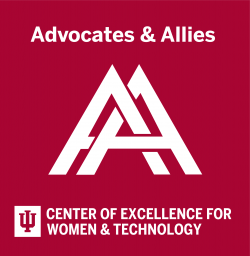Holocaust Remembrance Day is on the 27th, so we highlight antisemitism in higher education and how we can be better allies to Jewish folks in higher education and beyond.

Reflect: What’s in a hyphen?
Antisemitism versus anti-semitism. It may seem like a small difference, but a hyphen can change meaning in important ways. Antisemitism refers to hatred of Jewish people and culture, appearing in rhetorical, physical, and cultural ways. When we introduce the hyphen, it linguistically suggests that something called “semitism” exists, which is a bigoted fallacy perpetuating Nazi race science and conspiracies about Jewish privilege.1, 2 Jewish identity is a complex, ethnic and/or religious identity, and the rhetoric and systems that seek to oppress Jewish people must be recognized. What does this slight difference reflect in the way that conspiracies have become foundational to antisemitism? How does using the correct terminology help us overcome antisemitic bias?
Learn: Antisemitism in Higher Education
Following recent rises in antisemitism societally, college campuses have seen a rise in antisemitic incidents.3, 4 However, antisemitism is baked into the foundation of higher education. Stanford recently released a report finding that administrators had intentionally curbed acceptances of Jewish students in the 1950s,5 a trend that other elite institutions also followed.6 Some of the most commons forms of antisemitism appear in biased interpersonal interactions, especially where people perpetuate antisemitic stereotypes. Recent research suggests that Jewish students continue to be concerned about how open they are allowed to be regarding their identity,7 particularly as popular cultural figures repeat antisemitic conspiracies and tropes.8 In addition to biased behaviors from others, institutional bias still abounds. Most commonly, this institutional bias takes the form of being exclusionary to Jewish observances and practices, including non-consideration of the timing for fasting/non-working holidays and serving non-kosher food. However, incidents like what happened at the University of Virginia in 20179 also show that institutional commitment to free speech10 is often capitalized on by white supremacist, antisemitic groups.
Change:
- Discussion questions: Here, we are providing questions you can use with friends, family, colleagues and your general community to start a conversation about antisemitism in our daily lives and work. Where do you see antisemitism happening in front of you? How has antisemitism been normalized in our immediate circles? What about in our broader community? In what ways can we make our spaces more inclusive to Jewish practices and observances? How can we create better connections with Jewish organizations and resources in our work?
- Challenge conspiracies/stereotypes: A litany of conspiracies and stereotypes perpetuate antisemitism on an interpersonal scale, as well as in the media (e.g., prototypes for goblins and witches stem from overtly offensive caricatures of Jewish people11). In totality, these stereotypes and conspiracies – often stemming from as far back as the Middle Ages12 - hinge on ideas that Jewish people are in control and conniving an agenda; as such, conspiracy theories about Jewish people controlling the media/money, having dual loyalties to Israel, communistic tendencies, and more insidious claims of blood libel/reptilian cabals/etc. abound.13, 14 Such stereotypes relate to what is known as the Great Replacement theory,15 a false conspiracy which spurs much white supremacist violence. When you hear anyone refer to a Jewish “agenda” or claim an inherent nature to Jewish people, challenge them on these claims. Ask questions which encourage them to interrogate where these beliefs come from.
- Unearth history:Denial and distortion of the Holocaust and other antisemitic events is on the rise across the world.16, 17 As allies, it is important that we continue to learn about Holocaust and antisemitic history so that we can address these denials as they happen. When denial of such events as the Holocaust becomes mainstream, it allows privileged people to begin questioning and undermining the lived experiences of Jewish people. Such denial also extends to smaller subgroups’ experiences during this event, such as Jewish women who experienced much sexual violence18, 19 and fought back.20 The International Holocaust Remembrance Alliance offers a toolkit to combat denial and distortion of the Holocaust.
Weekly Resource Recommendations
- Book:The Chosen: The Hidden History of Admission and Exclusion at Harvard, Yale, and Princeton - Karabel highlights how exclusion in admissions at Ivy League institutions was based on stereotypes and conspiracies, including Jewish people.
- Video: What is Antisemitism – The U.S. Holocaust Memorial Museum discusses key elements of antisemitism in the modern era.
- Article: How to confront rising antisemitism in the U.S. - This short article focuses on how antisemitism has resurged in the U.S.
- Podcast: Voices on Antisemitism – This podcast series focuses on multiple perspectives about the nature of antisemitism in history and in the contemporary stage.
Get these tips delivered to your mailbox!
We send these tips every Tuesday during the fall & spring semesters to our mailing list. If you are not already on our mailing list you can request to be added by completing the form below.

